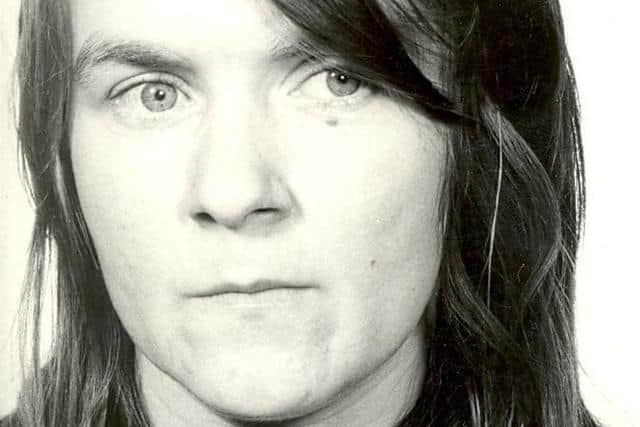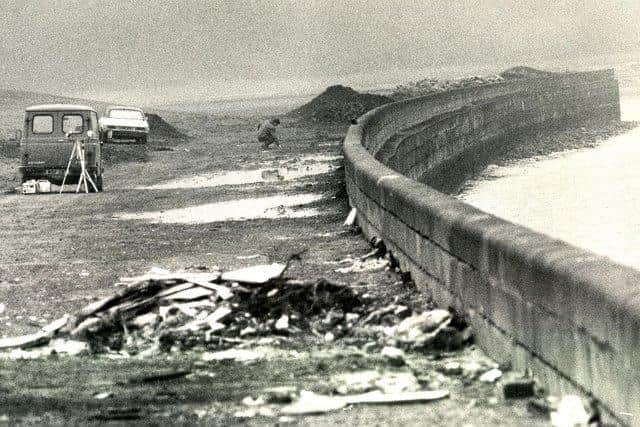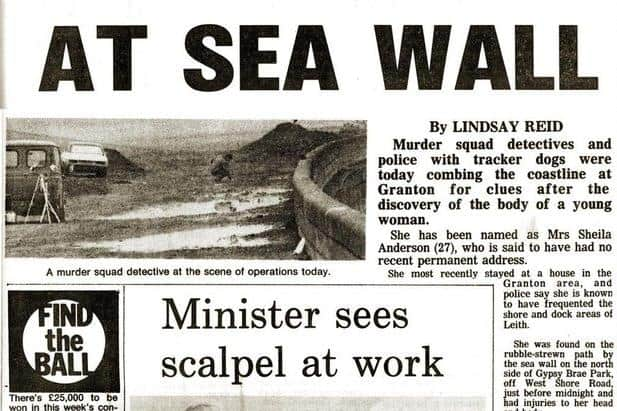True Crime podcast: Sheila Anderson Edinburgh cold case explored by Left For Dead podcast
and live on Freeview channel 276
Let us know what you think and join the conversation at the bottom of this article
When Sheila Anderson was discovered dying at Gypsy Brae in April of 1983, it spurred an police investigation that continues to this day and one still plays on the mind of former senior officer, Tom Wood.
In a new episode of the long-running podcast, Small Town Dicks, Wood says of the murderer: "We have a DNA profile but we have never found him. We have tried all the tricks in the book but the case is still open, however, I live in hope.


Advertisement
Hide AdAdvertisement
Hide Ad"I have told the guy that runs the Cold Case Unit now that I look forward to the day when some elderly gentleman gets a knock on the door and has to answer the question, 'Where were you in April 1983'."
Anchored by actress Yeardley Smith, best known as the voice of Lisa Simpson in The Simpsons, and veteran, identical-twin detectives Dan and Dave, Small Town Dicks is a podcast normally about ‘big-time crime happening in Small Town, USA’ but in the latest episode they take a trip across the pond to catch up with the retired Deputy Chief Constable.
Wood recalls how Anderson, just 27 at time of her death, was found badly mutilated by two Citizens' Band radio enthusiasts driving along Gypsy Brae by the Granton foreshore; the young couple swerved to avoid what they thought was a bag of rubbish only to spot a pair of feet.
Stopping, they found the bundle was a young woman, described by Wood in the broadcast as, 'flattened, apparently run over a number of times'.


Advertisement
Hide AdAdvertisement
Hide AdThe 42 minute podcast records how, left for dead, Anderson was actually still alive when the ambulance arrived but died by the time she arrived in hospital where another police officer working a different case recognised her.
Consequently, within hours, the immediate line of enquiry saw Lothian and Borders Police looking for the "punter" Anderson had been seen with just a couple of hours before her death.
Examination revealed that the mother-of-two had been repeatedly run over by a car and, although police identified a DNA profile in 2009, her killer remains at large.


Known to be feisty and prone to argue with difficult customers, Anderson could turn aggressive. According to other sex workers, if a client refused to pay, she had on occasion stood in front of their car until they did.
Advertisement
Hide AdAdvertisement
Hide AdWhen found she had been missing personal belongings causing speculation that this may have been such a case in point - the items being left in the client's car when she made her move to the front of the vehicle.
In the podcast, Wood remembers how the murder exposed the ways in which Capital's sex industry had changed beyond all recognition since the arrival of heroin in Edinburgh. It also led to the setting up of tolerance zones and protection for sex workers in the city.
Estranged from her husband and two young children and living in a drug squat at the time, Anderson was, he says, "One of the first generation of accidental prostitutes".


Trapped in the first wave of heroin to ensnare the city, she was what was classed a ‘casual sex worker’, working to pay for her addiction.
Advertisement
Hide AdAdvertisement
Hide AdAs Wood explains to the podcast’s hosts: "Over six months, the Leith sex scene had changed. Old street-wise, experienced street women had been replaced by young, part-time, reckless drug users."
This drove down prices as low as £2 or £3 as the new breed of sex worker, many just teenagers, spaced-out and unable to protect themselves, tried to make the cash to feed their habits which, the ex-detective says, often cost as much as £100 a day, a lot of money in the 1980s.
"Punters had also changed," he adds, "Instead of the sailors of the Port, now people came from far and wide, as far as 100 miles away. Many were serious criminals, selling drugs and looking to pimp the girls."
As the violence brought by these newcomers escalated police found themselves having to build relationship with the new sex workers most of who, reveals Wood, "had once been in the care of the local authority."
Advertisement
Hide AdAdvertisement
Hide AdFrom children's homes, many had fallen through the gap created when they left care and found themselves with nowhere to go.


"Heroin changed the street sex scene," he says.
Many consider Anderson's murder to be the case that changed policing in Scotland because of the ways in which it changed how police interacted with sex workers and although currently unsolved, as many other cases have shown, time will tell and names will be offered up.
Wood says: "The key to a cold case is to keep it warm. All you need is that name."
He continues: "Sheila Anderson deserved and got the same calibre of investigation as anyone else and I still live in hope that I'll get a phone call one day saying that, 'We've got the guy'.
Advertisement
Hide AdAdvertisement
Hide Ad"This is important to me because of the tragedy of this girl's life. The photographs her father gave us, the last photograph he had of her was when she was a school girl... to see how she ended up… But the other thing about it is, I know that case is there to be solved and it annoys me that so far we haven't and I hope that I live to see it resolved.
"It's coming on 40-odd years ago so, if the guy himself was in his 30s or 40s, and most of the people who used the street women were in that age group, could be dead now, but even so, I would like to know who it was.”
Listen to Small Town Dicks: Left For Dead at https://www.smalltowndicks.com/
